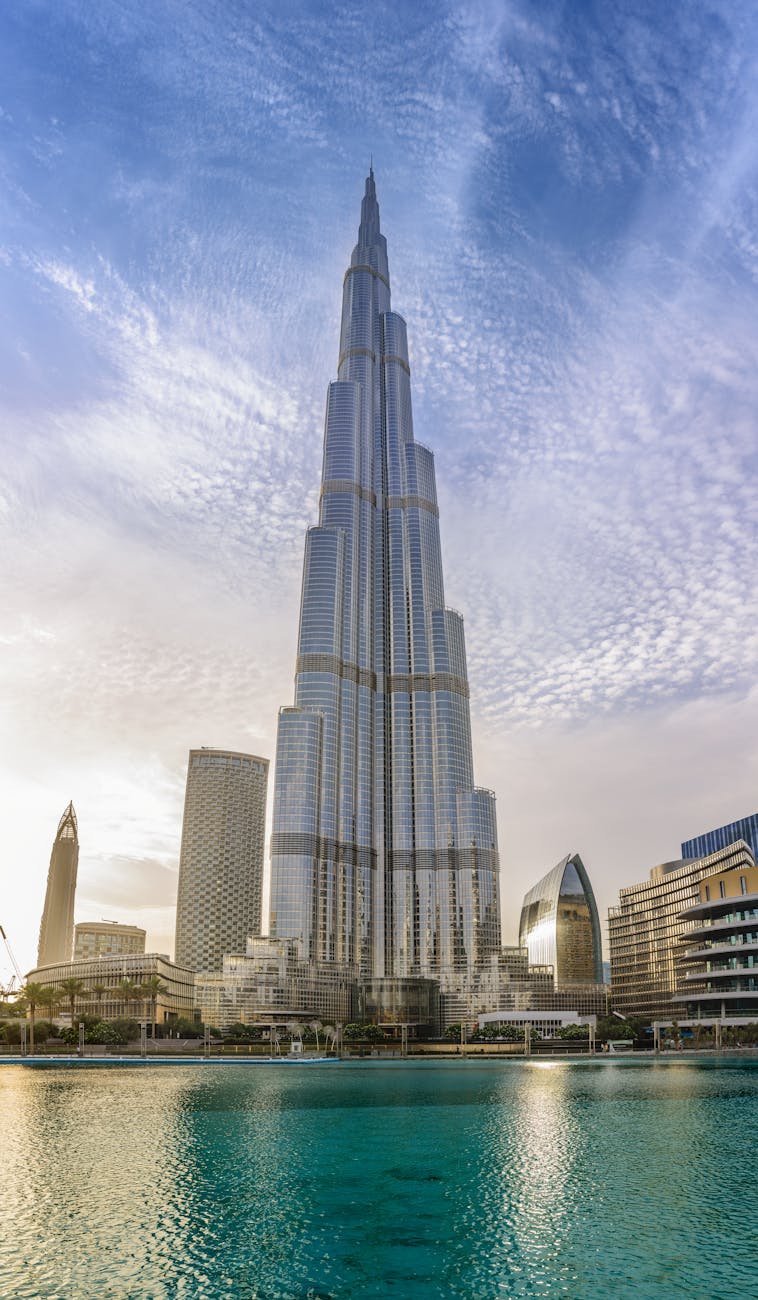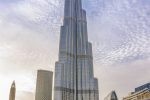UAE: Stunning Best Advantage in Arab Doing Business
UAE, a dazzling beacon on the Arabian Peninsula, has long been synonymous with economic dynamism and entrepreneurial vigor. In a region where tradition often intertwines with rapid modernization, the UAE’s stature as the fastest-growing economy in the Arab world stands out. From the world‑premier port of Jebel Ali to the free‑zone ecosystems that host more than 70 % of foreign‑owned businesses, the country offers a unique blend of location, policy, and innovation that fuels a thriving business atmosphere. In this feature, we unpack the key factors that position the UAE as the most attractive hub for doing business across the Arab world, drawing on data from national authorities and global benchmarks.
—
1. Strategic Geographic Advantage
Proximity to Key Markets
The UAE sits at the crossroads of Africa, Europe, and Asia—an advantage mirrored in its land‑and‑sea corridors that bridge the East and the West. The Ministry of Economy reports that over 50 % of the nation’s trade volume traverses its ports, directly linking Middle Eastern consumers to the global marketplace. This geographic positioning translates into:
– Reduced shipping times – Notable maritime routes cut travel by up to 70 % compared to neighboring Gulf states.
– Regional network hubs – Dubai International Airport, the world’s busiest cargo hub, handles more than 290 million passengers annually.
– Time‑zone overlap – Operating across the UTC+4 zone allows real‑time interaction with Africa, Asia, and Europe.
These elements underpin the UAE’s ability to attract multinationals seeking seamless logistics and distribution networks.
Transport Infrastructure
The UAE’s rail network, a nodal point of the Gulf Cooperation Council (GCC) rail corridor, connects Dubai to Sharjah, Ajman, Umm Al Quwain, and Qatar. By 2026, projected completion of the Arabia Railway Network promises 1,700 km of direct rail lines, drastically reducing freight costs. Air freight volume peaked at 9 million metric tonnes in 2023, according to the General Civil Aviation Authority, underscoring its status as a global aviation hub.
2. Free‑Zone Ecosystems
Dedicated Economic Zones
The Free Zone Authority reports that the UAE now hosts 38 free zones, ranging from Dubai Internet City to Abu Dhabi’s Khalifa Industrial Zone. Each zone offers:
– 100 % foreign ownership – A move considered revolutionary for the Gulf region.
– Zero corporate tax for 15–50 years – Incrementally phased out as of 2023.
– Tailored industry clusters – e.g., Finance City, Smart Dubai, and Alserkal Avenue for creative arts.
These zones provide fully integrated business centers, including warehouse facilities, office suites, and streamlined licensing.
Regulatory Cadre and Simplified Processes
Business Licensing and Regulation Committee data reveals a 30‑day average processing time for new company approvals in free zones, compared to 60 days or more in mainland jurisdictions. Registered firms in free zones also benefit from:
– Simplified visa procedures – 90‑day visas available for investors.
– Umbrella banking licences – Banks can issue corporate credit instantly under free‑zone authorizations.
– No restrictions on repatriation of profits – Companies can transfer 100 % of earnings abroad.
These attributes collectively lessen bureaucratic friction and encourage rapid scaling.
3. Taxation and Fiscal Incentives
Corporate Tax Landscape
Dubai and Abu Dhabi introduced a federal corporate tax of 9 % for entities exceeding AED 375 000 turnover in 2023, following the UAE Federal Tax Authority’s decreed reforms. While this is the first time the country has levied a corporate tax, the statutory exemption for many sectors (oil, finance, real estate, and free‑zone companies) remains.
Personal Income and VAT
Personal income tax remains non‑existent, a feature highlighted in UAE Labour Law amendments. The VAT register is set at 5 % since January 2018, as mandated by the Federal Tax Authority. The VAT mechanism simplifies by applying a single rate across all consumer goods and services, and offers a concession for small businesses under the VAT exemption threshold of AED 375 000.
Double‑Tax Treaties
The UAE has signed 38 double‑tax agreements (DTAs) with countries worldwide, including the UK, US, and Germany. These treaties guarantee that investors can avoid double‑taxation on cross‑border earnings, reinforcing the UAE’s position as a global investment hub.
4. Digital Transformation and Smart Governance
Smart Dubai Initiative
Under the “Smart Dubai” project, the municipality compiles a digital operating system that integrates over 80 % of government services. Key outcomes include:
– Ehsaas digital portal – A one‑stop platform for salaries, permits, and municipal services.
– Real‑time traffic and utility monitoring – Reducing downtime by 25 % in city operations.
– Open data portal – Transparency that attracts climate‑sensitive investors.
The ongoing Artificial Intelligence regulator will extend these services to business processes, making compliance faster and more data‑driven.
E‑Visa and Online Business Registrations
The Ministry of Cabinet Affairs and Governance launched an e‑visa system in 2022, reducing tourist application time from seven days to under 24 hours. Business registration portals, such as the Dubai Department of Economic Development’s “Easy Dubai” portal, reduce paperwork to a single online submission, enabling business owners to obtain licenses in real time.
5. Regulatory Reforms and Economic Vision
Dubai Vision 2030
Dubai’s strategic plan outlines objectives to:
– Diversify the GDP away from oil and real‑estate spend to sectors like manufacturing, tech, and health.
– Attract 20 % of the GDP from foreign direct investment by 2030.
– Establish green tariffs for sustainable electrical and building standards.
These targets align with Emiratization policies, encouraging local talent and skill development.
Abu Dhabi Economic Vision 2030
For Abu Dhabi, the Vision 2030 blueprint emphasizes:
– Economic diversification by bolstering the renewable energy sector.
– Entrepreneurial ecosystem through the Abu Dhabi Global Market (ADGM), a leading free‑zone financial center.
– Digital inclusion to expand health, education, and finance services across the Emirates.
Both visions underscore the belief that open regulatory frameworks and investment facilitation must accompany tangible economic growth.
6. Diversification and Innovation Ecosystem
Innovation Hubs
The UAE’s invision of an “innovation economy” is palpable in places such as Dubai’s Metropolis and Abu Dhabi’s Masdar City. These hubs:
– Host over 2,000 start‑ups across fintech, healthtech, and AI.
– Offer co‑working spaces and incubators with as many as AED 12 million in seed funding from public‑private partnerships.
– Engage in venture capital outreach that attracted $10 billion in venture capital flows in 2023, according to the Dubai-based Dubai Venture Capital Association.
Frost & Sullivan’s rankings
The Global Cities Index (2024) lists Dubai as #5, while Abu Dhabi ranks 8th in “Innovation” categories for 2024. These positions bolster local enterprises by positioning the UAE alongside global innovation leaders.
7. Foreign Investment Climate
Simplified Investment Processes
The Investment Support Office (ISO) promotes a “single window” portal where business owners can:
– Allocate a dedicated investment proposal to the relevant authority.
– Track real‑time progress of approvals and obtain digital payment receipts.
– Receive AI‑generated compliance checklists to meet regulatory standards.
2023 Investment Measures
– Refund Policy – Foreign business entities can apply for a 30% refund on capital deposits under the Investment Law.
– Industry-Specific Incentive Packages – For example, the UAE Automotive Competitiveness Program offers a 3‑year tax holiday for electric vehicles in free zones.
Investor Protection
The Commercial Companies Law (2024) codifies indemnity clauses that safeguard investor rights during asset liquidation, and the Abu Dhabi Global Market’s regulatory framework provides one of the most robust dispute settlement systems in the region.
8. Talent and Workforce Dynamics
Expat Workforce
Expatriates constitute ~80 % of the labor market in UAE cities, a rate evidenced by the Ministry of Human Resources and Emiratisation (MOHRE). Fluency in English or Arabic is mandatory for managerial positions, supporting a bilingual workforce.
Emiratization Policies
MOHRE’s National Emiratization Programme targets:
– Incremental steps in the private sector – By 2025, 10 % more Emiratis should fill senior roles in the banking sector.
– Training quotas – Each company must provide at least 100 tangible training hours per Emirati per year.
These policies help create a sustainable, skilled talent base that reinforces business continuity.
Remote Work Regulation
In a pioneering move, the UAE Federal Law on Remote Working (passed 2023) standardizes remote work agreements, labor rights, and data security protocols for telecommuting employees. This legislation ensures that businesses can tap into global talent while remaining compliant.
9. Challenges and Future Outlook
Challenges
1. Labor Market Saturation — High demand for specialized skills in tech and renewable energy exceeds the local supply.
2. Carbon‑Neutral Pressure — The UAE’s ambitious carbon-neutral by 2050 clause imposes financial responsibilities for high‑emission sectors.
3. Geopolitical Tensions — Varying security dynamics in the Gulf region can impact cross‑border supply chains.
How the UAE Tackles Them
– The government invests AED 25 billion annually in STEM education to close skill gaps.
– The Emirates Climate Fund provides green‑loan financing to businesses transitioning to renewable energy.
– The UAE’s neutral stance in regional disputes invites a stable business climate for foreign investors.
Future Prospects
The UAE’s Blue Economy strategy positions marine and water technologies as growth pillars, projected to become a $70 billion sector by 2030. Coupled with continued digital infrastructure expansion—high‑speed 5G coverage expected nationwide by 2025—businesses can rely on ultra‑reliable, low‑latency networks for logistics, fintech, and AI applications.
10. Bottom Line
The UAE’s ascent as the “Stunning Best Advantage in Arab Doing Business” stems from a myriad of synergistic factors:
– Geographic privilege that links three continents.
– Robust free‑zone footprints and simplified licensing.
– Favorable tax regimes and double‑tax treaty networks.
– Pioneering digital governance and Smart City initiatives.
– Visionary diversification plans backed by concrete workforce development.
– Transparent investment mechanisms and investor protection frameworks.
While challenges linger, consistent policy updates and a vision anchored in sustainability cement the UAE’s standing as the most conducive business environment in the Arab world. For entrepreneurs, corporate investors, and policymakers, the United Arab Emirates offers an ecosystem where opportunities are abundant, regulatory pathways are clear, and the future looks increasingly promising.









